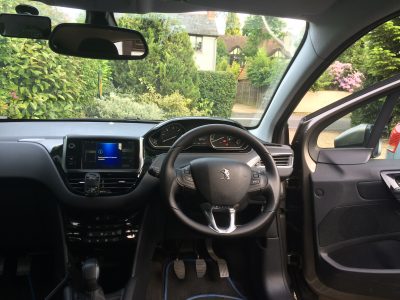
Can hayfever have an affect on your driving?
Can hayfever have an affect on your driving?
As the days get longer, we know that the seasons are changing and summer is on it’s way. What an exciting time it is, especially when you’ve just passed your test and can finally get out on the road. Festivals, camping trips and hanging at the beach are all just a drive away…until that sniffly nose and red, itchy eyes start to hit. Yup, summer is hay fever season and with the NHS saying around 1 in 3 of us are sufferers, we often rely on our medication to get us through.
OK to drive?
When you’re suffering from hay fever it can be really distracting when you’re driving. Watery, itching eyes can cut your visibility to zero and taking your hands off the wheels to blow your nose is downright dangerous. Symptoms can be so off putting that some people never bother to learn to drive at all.
Allergy UK have some useful tips to help you feel more comfortable behind the wheel when hay fever strikes:
• Use anti-allergy eye drops and wear sunglasses when you’re behind the wheel
• Keep tissues in the car and pull over to deal with a fit of the sneezes
• Use an allergen barrier balm around your eyes and nose to act as a pollen trap
• Close your car windows, turn on the AC and get fitted with a special anti-pollen filter
• Go to the seaside! The pollen count is much lower when you’re by the sea.
Don’t risk it
According to Brake, the road safety charity, 44% of drivers never bother to check what’s in their meds or what the side effects are and that’s when you could run into a whole heap of trouble. Some anti-histamines can cause dizziness, blurred vision and drowsiness – not ideal when you’re behind the wheel of a car, especially when you’ve just passed your test and are out on the road alone for the first time! Allergy UK recommend that you ask your pharmacist for a non-drowsy and long-acting anti-histamine formula that doesn’t have a sedative effect, so don’t just scoop up any old remedy when you hit the chemist, but do some research first so you know which brands to avoid when driving.
Be safe, not sorry
If the label says take one, then jut take one – anti-histamines are powerful stuff and not to be gobbled like sweets. When you do read the label – and you really, really should – if your meds have any sedative effects like drowsiness, just don’t take them if you’re going to drive.
Don’t drive on drugs
Did you know that new drug driving regulations came into force in 2015 that mean you could face a £5,000 fine, 6 months in prison or a 1-year driving ban if you get caught with certain substances contained in hay fever meds in your bloodstream? It’s a big price to pay for not reading the label, so follow the tips above and enjoy your summer driving trouble-free!
More from Blue School Of Motoring: